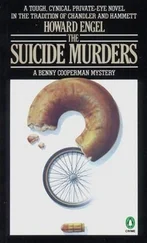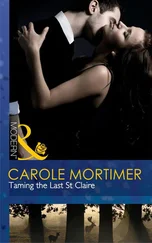She left Elsa standing in the center of the bedroom and went to the closet, which no longer had doors — another story of the house that she would never know. She knew just what dress, one she’d seen Elsa wear ages ago. And she knew it would still be there. Elsa never threw away clothes, preferring instead to alter and patch forever. Claire slipped it from its hanger. The navy-blue dress gave up soft buds of dust.
It was easy enough to slip off Elsa’s quilted bathrobe with the zipper down the front, but quite another to force her arms into the meshy fabric, a half tissue still wadded in her clenched fist. Elsa’s skin was clammy and the transparent sleeves clung to her shoulders. The back zipper got stuck on Elsa’s underwear. Claire thought she heard her whimper but she couldn’t be sure. This was what Elsa wanted, to time travel within her own life. Claire was only giving Elsa what she wanted.
She sat her mother down on the edge of the bed and brought a dusty makeup bag from the dresser. Elsa had been silent since the living room.
“Tell me what play you’re going to see,” Claire said.
“It’s a play,” she said.
It was harder than Claire thought to apply lipstick to someone else, clumpy where the skin was dry. It didn’t look good.
“I’ll put a blue-gray eye shadow on you. To go with your dress.” Claire showed her.
But Elsa wouldn’t keep her eyes closed and some powder got in them. She kept blinking and rubbing her eyes so the makeup smeared into her temples. Claire caught her hand before she could make more of a mess.
“Where are your dinner reservations?” Claire asked.
But Elsa was distracted by something over Claire’s shoulder. She touched Elsa’s face to focus her attention, but Elsa wouldn’t look her in the eyes.
Claire stood up and looked dramatically at her empty wrist. “Come on or you’ll be late. Don’t you know you look beautiful?” She smoothed Elsa’s coarse white curls down with her palm. Her hair was a handful of twigs.
But she did look beautiful, if a little haphazard. Claire stood her in front of the mirror. “See? You’re beautiful.” Claire used a thumb to wipe away the excess eyeshadow, then pried open Elsa’s fingers and placed the torn tissue between her lips. “Press down,” Claire said, and Elsa pressed down. Elsa would let her do anything. It was like dressing up a doll. Claire looked at her mother’s stooped body in the mirror, how much smaller it was than her own.
Elsa stood there, shivering in the warm bedroom. “Ernest will be underdressed as always,” she said, nodding at her reflection. “I’m ready.”
Elsa shuffled out to the living room and down the hall, slowly, each step as precarious and difficult to land on as words. She stopped at the front door. She did not open it.
Now what? “We’ll wait here?” Claire asked.
Elsa pressed her head to the high window in the door, which she just barely reached, swiveling her forehead left then right, following the snowy road. She tried lifting herself to be as tall as she actually was, but her body wouldn’t unbend.
And Claire did nothing. She stood behind her mother, watching her wait, waiting for her to forget what she was waiting for. What had she done? Fairly pushed Elsa into the past and for what? To watch her wait for a dead man? When would it hurt least to be pulled back?
But when Elsa answered these questions herself by saying, “Put on the Marlene Dietrich, please,” Claire found she did not want to. They hadn’t finished the memory yet. Claire wanted to know what happened next.
“Don’t you want to go to the theater?” Claire found herself saying.
Elsa tried to turn back toward the living room, but Claire spun her to face the door again. She shushed her, though Elsa hadn’t made a sound. Claire held Elsa upright, as if she couldn’t stand on her own. You try to keep a moment that’s not yours to keep.
“Let’s wait here a moment longer,” Claire said, “I think I hear a car coming.” Was she trying to conjure her father back from the dead? But Elsa wouldn’t give her a moment longer and in the struggle, with Claire pointing at the window with one hand and holding her mother up with the other, Elsa yelped and her knees buckled and she was suddenly on the floor, yelling in German in her navy-blue dress.
Claire tried to help her up, but Elsa was dead weight. “Stand up, please.”
She wouldn’t stand. Elsa looked like she was about to cry, but instead Claire found her own face was wet. She had missed the moment of release and there she was crying and she couldn’t stop. “I’m sorry. Please, Mom, you have to get up.”
To know her mother as she was now, the way she’d never know her father — to know how her knees locked together when she stood, how she shuffled her feet when she couldn’t find the words. How her far-off smile was slightly raised on the right side and how she wanted to hear the same song over and over again. And how they shared a loss of memory, sometimes: Claire couldn’t remember how her father took his coffee. Or how he’d said goodnight to her at bedtime. What stories he told, or didn’t.
“Put on the Dietrich,” Elsa said, calmly.
Lifting her slowly, Claire brought Elsa back to the living room, sat her in the big chair. She dropped the needle on the record Elsa wanted, which never left the turntable. The phonograph crackled then gave way to Marlene Dietrich’s voice singing in German, “Where Have All the Flowers Gone?”
Without meaning to, she thought of the moment Nicolette arrived, that waiting-moment in her den. Perhaps, like Elsa, waiting was the only kind of moment she could return to. Perhaps Claire’s father was held late at the shop, or whatever job he had then, but had arrived home just in time — Claire imagined them rushing to their seats, the rain in their hair catching the light of the chandelier. Or maybe nothing happened next. Maybe Elsa was left waiting in her navy-blue dress, watching for him out the window, watching the cold move, and he failed to come home in time. Perhaps her mother was waiting for him still. The mind drifts to loss.
Claire put on her best caregiver-Claire face as she prepared to give Elsa her meds — she could build a fortress out of Elsa’s weekly pill regimen. From the kitchen, Claire could hear the soft murmurs of a talk show coming from the living room. She found Elsa’s favorite blue cup and turned on the tap. Nothing but the tortured, out-of-breath sound of empty pipes. She tried the hot water. Nothing. She looked under the sink, though she didn’t know what she was looking for. What had her father done when the pipes froze?
With a large pot, Claire went outside and only then realized that if it was cold enough for the pipes to freeze, she ought to have put on a coat and something other than slippers. But it would only be a minute, and there was a break in the snowfall. The sky was all white. This was a blackberry winter, the weatherman said. A dogwood winter. It was midmorning, but it could have been any time. No horizon today.
She knelt close to the side porch, away from the animal tracks, which had faded since early morning but weren’t covered completely. As she scooped a pile of fresh snow into the pot, Claire wondered what time she would she return to, if she could go back like Elsa. If she could fit her life into a moment.
Most people, Claire suspected, would choose moments revolving around a spouse or children, or art, something created. But Claire had never made anything. She’d thought living with Mary, helping to raise Leo, would be a pinnacle. Mary was supposed to have been the person and point that all other moments and encounters had been building towards. But she was just another bread crumb in a row of bread crumbs leading Claire to where? The moment wasn’t hers to keep. Leo would be a handful of a teenager by now.
Читать дальше












